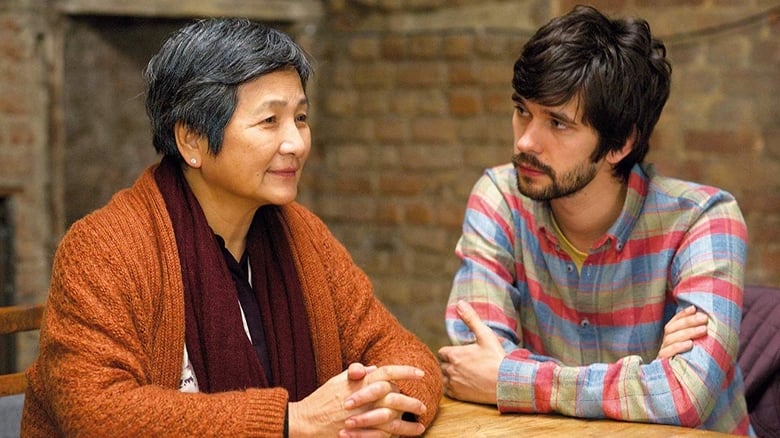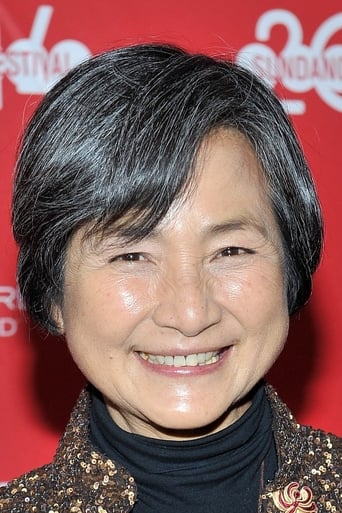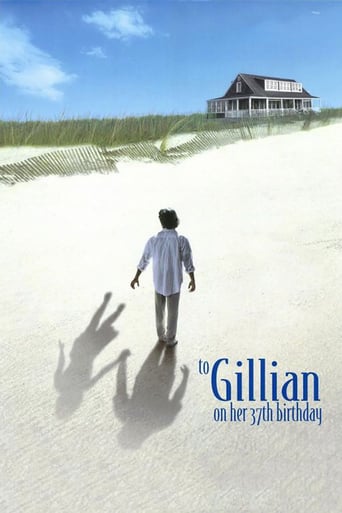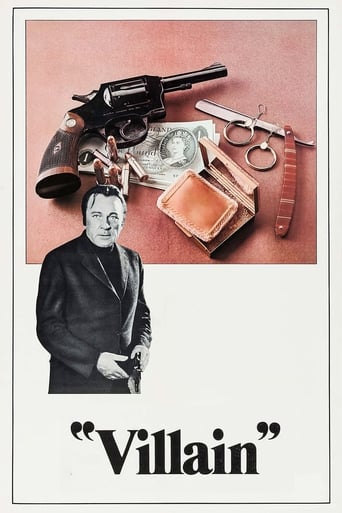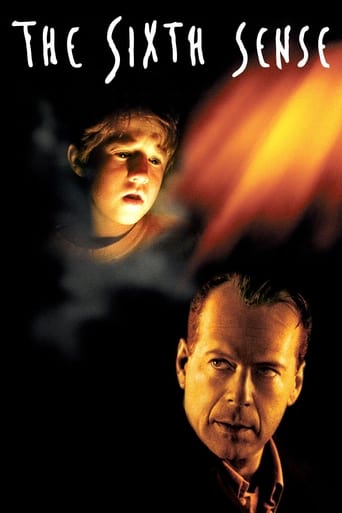Lilting (2014)
A young man of Chinese-Cambodian descent dies, leaving behind his isolated mother and his lover of four years. Though the two don't share a language, they grow close through their grief.
Watch Trailer
Cast


Similar titles
Reviews
Ok... Let's be honest. It cannot be the best movie but is quite enjoyable. The movie has the potential to develop a great plot for future movies
It's a good bad... and worth a popcorn matinée. While it's easy to lament what could have been...
The best films of this genre always show a path and provide a takeaway for being a better person.
The film's masterful storytelling did its job. The message was clear. No need to overdo.
it is the basic ingredient. for looks, for gestures, for discover the film more than a gay story or clash between different cultures.because it has the gift to become translation of the history of the viewer. in the case of Lilting, the grace of image defines not only pieces of a puzzle but the rhythm of yourself discover. because it reminds profound relationships, the force of the past, the fears, the forms and nuances of love, the expectations, the role of the other to define things, words, decisions. a film about the transformation of solitude in a subtle friendship. delicate. impressive, touching and delicate. a film about escape from yourself. mark of a real interesting director.
I loved every minute of this very rare jewel. It works so well on each degree of perception, from the base camp and practicality of needing a translator, to the use of fine photography in capturing the stillness and stultifying grief of both Jun and Richard, and on to the more complex tones and notes of dealing Kai's 'coming out' posthumously.The notion of aged care homes being decorated in retro style is charming and works well with the contrasted scenes in Richard's flat. I note that Jun hates the wallpaper ~ the ghost of Oscar Wilde whispering in the hallway? It is great to see the Mandarin language use in an English film ~ another rarity?, along with the gorgeous use of the song 'Sway' and Jun's longing to hear it, the repeated promise from her son broken until Richard delivers the goods.Warning: this film contains dancing.
"Lilting" is a quiet study of two people at opposite ends of grief. After the sudden death of Kai (Andrew Leung) his boyfriend Richard (Ben Whishaw) is left to piece together the compartmentalized fragments of Kai's brief life. Single most among them, that Kai has left his mother, Junn (Pei Pei Chen), stranded in a rest home. Though Kai had kept his and Richard's relationship a secret from her, Richard nevertheless initiates contact with Junn. Meeting with her at the rest home he discovers that she has made an "acquaintance", Alan (Richard Bowles), with whom she shares no spoken language. Their relationship is based on sensations and a complete lack of any practical knowledge of one another. Seeing this Richard takes it upon himself to hire a translator, Vann (Naomi Christie). Richard tells Vann that Junn speaks six different languages, and that one of them is NOT English despite having lived for decades in London. Vann responds, "lazy bitch" and he responds with a pained smile, "so selfish". Those simple lines are filled with sympathy, awe, and irony. Richard and Vann fully comprehend this. With that they establish an on screen chemistry that is endearing and comforting. And that moment is the start of how this movie uses grief, loss, and profound sadness, to explain the absolute necessity of understanding the meaning of words - and the absolute irrelevance of the meaning of words. The trajectory of these two grieving souls, Richard and Junn, coming face to face, is now set. Richard repeatedly extends himself to Junn in an effort to pick up where her son left off. Though his efforts are generous and from the heart, they are not without some self interest. When Richard is close to Junn he's close to someone who, though in a different way, loved Kai as much as he did. Through flashbacks we come to know that Richard had a healthier and less conflicted perception of Junn than did her son. Kai was afraid to explain fully who Richard was to his mother and she grew to imagine him as an impediment to her relationship with her son. And by bringing Junn and Alan together through a translator, Richard allows himself, once again, to be placed on the perimeter of Junn's life. It is the familiar place he was kept in when Kai was alive.Junn searches Richards eyes trying to figure out who he is, why he is helping her, and what exactly her son meant to him. She hears him speaking English, but she searches his eyes for the real meaning that she knows is beyond the translated word. Richard holds back his own grief over Kai allowing Junn to be the grieved one. At one point Junn references a picture of Kai and Richard's emotions well up. Choking back tears and barely able to speak, he asks Junn, "do you like living here?" The disconnect of hearing such pointless chitchat from someone so emotionally devastated is jarring. Over and again, Richard chooses to suppress his grief. Junn has lost the only person in the world she loved. So has he. And she can't know.Kai is never seen "alive" in this film. He appears in flashback as he is being remembered by either his mother or Richard. Because this is not known immediately to the audience, we go through our own experience of loss and grief as we come to realize that he is gone. The bedroom scenes with Richard and Kai are ethereal and touching. Breathtaking cinematography creates a halcyon beauty to their connection with one another. Filmed from one side of the bed, with light from the window on their skin, memory is implied. Filmed with the window in the background suggests reality. These bits are cut together, continuously, throughout the scene. The dialog sometimes comes from their mouths as though spoken and alternately in voice-over as though being remembered. It is genius, subtle, and very moving. And that is just one of the ways this film conveys the absence of the character around whom this story is being told. Connecting these related scenes and flashbacks are tableaux of cold gray skies, landscapes entombed in frost, leafless, lifeless, trees, and an underlying music score of haunting contemplative beauty. These winterscapes are the connective metaphor for death and loss that underlies this story.The ocular interplay in this film is a whole separate script from the written dialog. It heightens the emotional dexterity of the narrative and is powerful in the hands of this cast. Listen with your ears, but watch everyone's eyes. Pei Pei Cheng's performance is astonishing. Especially to the "English only" ear. We experience her reality as she rails with grief and frustration in a language we don't understand. That is her life, every waking minute of every day, now that her only human connection to the world is gone. Naomi Christie is affable, sweet, and unselfishly torn between the separate worlds of Richard's and Junn's loss. But it is Ben Whishaw, who's character has to balance ALL these realities in this drama, who gives a shattering and achingly constrained performance. Only Richard knows where all the pieces of this tragedy puzzle are. And only he can reveal them or choke them back when, and if, the time is right. He carries the full weight of this sad story alone and you feel it, through him, deeply. A role as complex and multi-layered as this cannot be in lesser hands and be effective. Wishaw is just brilliant. He not only delivers a riveting but quiet performance, he also chooses his film projects intelligently. Which brings me to first-time writer/director Hong Kahou. He has written an original, and complicated screenplay, and executed it with masterful directing. More than telling you a story, he tells you a feeling. And it is one that will stay with you for some time. The sad but hopeful ending was a complete stunner. And in retrospect, perfect.
This is the debut feature film for Hong Khaou, and being of Cambodian descent, I imagine this movie may be semi-autobiographical, though that is obviously pure speculation. This interesting little film (running on an insanely low budget of 12,000 pounds if I am not mistaken) is about a Chinese-Cambodian elderly woman, Junn (veteran actress Pei-Pei Chang), who has just lost her son Kai, not long after he put her into a home. He was gay, but could never bring himself to tell his mother. This was the reason she ended up in the home and not living with him and his boyfriend Richard (Ben Whishaw). When Richard enters the fold initially he seems like a stranger, at least as far as Junn is concerned, and to make it harder, he can't communicate with Junn as she can speak 8 different dialects, but refuses to learn English despite living in the UK. Despite their differences, despite the overwhelming obstacles to hurdle, Richard is not intending on giving up trying to talk to his partner's mother. They share the same pain, but Junn has no idea of this. Since Junn doesn't know about the same-sex relationship her son was having, Richard's job becomes at least twice as tough, as he has to act as Kai's 'best friend', trying to connect with Junn that they both are sharing the same misery, the same loneliness and sense of loss after losing a loved one.Along the way Junn meets a gentleman who is also a resident at the home. Playing an amusingly dry old codger, Peter Bowles as Alan is smitten by Junn, yet they have no way of truly communicating. Richard rectifies this by hiring a translator, which helps both Alan and Richard as it opens up a dialog between the different parties, for better or worse. Richard continues to go to endless lengths to try and communicate and help Junn overcome her son's death, as unwilling as she seems, as well as trying to help negotiate the problems Junn and Alan are having; it seems the possibility of a relationship with Alan may be slim. And so the story goes, moving from this premise into emotional territory where each character's decision is not easy, and someone as stubborn as Junn makes life difficult for Richard and the translator he has to help smooth the process Which doesn't go as smoothly as planned.This film is extremely depressing at points and heartwarming at others. It is nice to see a film with a real heart without dipping into overly sentimental trite. The true unforgettable message that this film gave me was how it illustrated how culture can truly alienate us; from loved ones, from people who want to help. But at the same time, it highlights elements of the human condition that transcend culture, such as family, or music. I didn't think I'd enjoy this as much as I did, it isn't my type of film really. But I really liked it. Probably also because I have seen how truly heart-breaking it is to make that decision to put a parent/grandparent in a home really is. It ain't pretty.8/10 - If you aren't looking for action, and are interested in watching a more thought-provoking movie that really will pull at your emotions, check this one out. The absurdly low budget is not noticeable at all, especially given the quality of the production, from the perfect sequence of scenes, to the subtle but interesting photography work and the minimal but effective soundtrack.This isn't a film that I will revisit immediately, unlike many others than have been released this year. But I know that a time will come where I suddenly will have to put this on. It is a powerful, emotional film that subtly comments on the differences of cultures and/or language, the stigma that is still attached to same-sex couples, especially among older, more 'traditional' people, but most importantly, a few key scenes show us that differences in culture, in language, in beliefs, can be transcended, and no matter what the barriers between communication may be, humanity can prevail. It is not impossible to share true, meaningful moments with someone who cannot speak a word of your language. This film excels at showing this, linking us all as human, no matter our colour, our culture or our beliefs.


